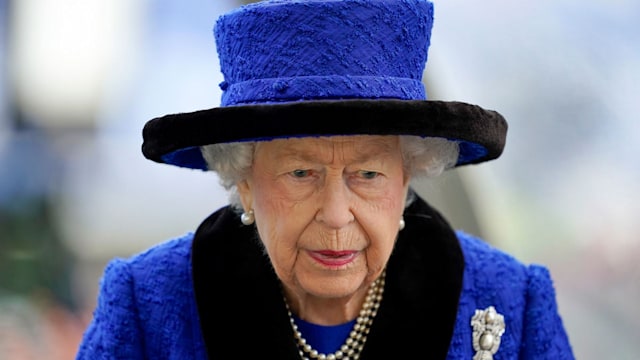Despite testing positive for Covid, the Queen has continued with "light duties" including her weekly telephone call with Prime Minister Boris Johnson – but is her busy work schedule putting her health at risk?
UPDATE: The Queen cancels virtual engagements for second time
Her Majesty, who had mild, cold-like symptoms, has cancelled virtual audiences, but went ahead with her weekly call with the PM as well as going through her red boxes and signing off official papers. Her Covid diagnosis follows a bout of ill health back in October 2021 when she was hospitalised for a night and began using a walking stick after suffering from mobility issues.
Since then the Queen has been on doctors' orders to rest, but at 95 years old, is her hectic schedule too much?
With her Platinum Jubilee coming up, the Queen has a busy year ahead, including a concert at Buckingham Palace with 5,000 members of the public set to attend. Celebrations for the Queen's milestone are planned throughout 2022, with the four-day Bank Holiday weekend from 2 to 5 June seeing a full-scale Trooping the Colour parade, a service of Thanksgiving at St Paul's Cathedral, the Platinum Party at the Palace and the Big Jubilee Lunch.
READ: How you can party at the Queen's London home this summer
RELATED: The Queen uses walking stick for first time in 17 years at joint outing with Princess Anne
While she recovers from Covid, the royal family has stepped in to take the load off the Queen. Princess Anne is set to represent her mother at the Sydney Royal Easter Show in April.
So, what do the experts think? Is the Queen overdoing it and should she be taking it easy following her bout of Covid? We caught up with NHS GP Dr Isabella Kent to find out more.
First things first, Isabella affirms that "age shouldn't be the sole factor determining someone's schedule and activities". "Instead, we should think about how frail an older person is (i.e. the amount of resilience and physical/mental reserve that they have to withstand external stressors)," Isabella says. "A person may be older in age, but not frail and therefore perfectly capable of doing activities that their younger selves were capable of."
MORE: Royal family's website shares update on Princess Beatrice's daughter Sienna
The Queen has continued to host official engagements, including this reception at Windsor Castle
She adds that if "an individual is generally fit and well, there's no reason why they shouldn't continue with regular physical activity", so if the Queen feels in good form, there shouldn't be any reason she shouldn't continue with her official engagements.
There is, however, reason for the Queen to keep a closer eye on her health than people of a younger age. "Preventing the onset of long-term illnesses is very important," Isabella explains. "Older adults in this age group are particularly susceptible to conditions such as heart and bone disease. Despite being busy, the Queen should keep a regular eye on things like her blood pressure, as if this is high it could lead to heart problems."
Isabella adds that "social interaction is especially important" for the Queen, since "we know that in this age group, this can protect against memory problems". Her Majesty is almost always surrounded by family, friends, and staff, so it's likely this has worked in her health's favour. Isabella agrees: "The Queen has a lot of support around her both in terms of family and assistants. Sadly, many older people live in complete isolation, away from family members or friends and with little or no extra support at home. This can have a huge impact on their physical and mental health."
The Queen "politely but firmly" turned down a trophy from The Oldie of the Year Awards
All that said, the Queen has lost her husband Prince Philip, and it's possible that this gap in her usual social interaction could have contributed to a decline in health that means she has taken to using a walking stick and resting.
Isabella adds: "The loss of a spouse can lead to feelings of loneliness and isolation. We know that in this age group loneliness and social isolation can actually accelerate the onset of memory problems and worsen cognitive decline."
MORE: 8 of the Queen's closest confidantes in her friendship group
The upshot? Judging by Dr Isabella's input, it makes sense that the Queen's team of support – both personally and through work – have helped keep her in good health, while the tragic loss of Prince Philip could have played a part in her need to use a walking stick and rest.
"There is no doubt that the Queen has had a lot to cope with over the past year and has done incredibly well at managing to maintain her presence at royal engagements, as well as composure in the public eye," Isabella concludes. "This is a difficult task for someone at any age!"
Make sure you never miss a ROYAL story! Sign up to our newsletter to get all of our celebrity, royal and lifestyle news delivered directly to your inbox.
